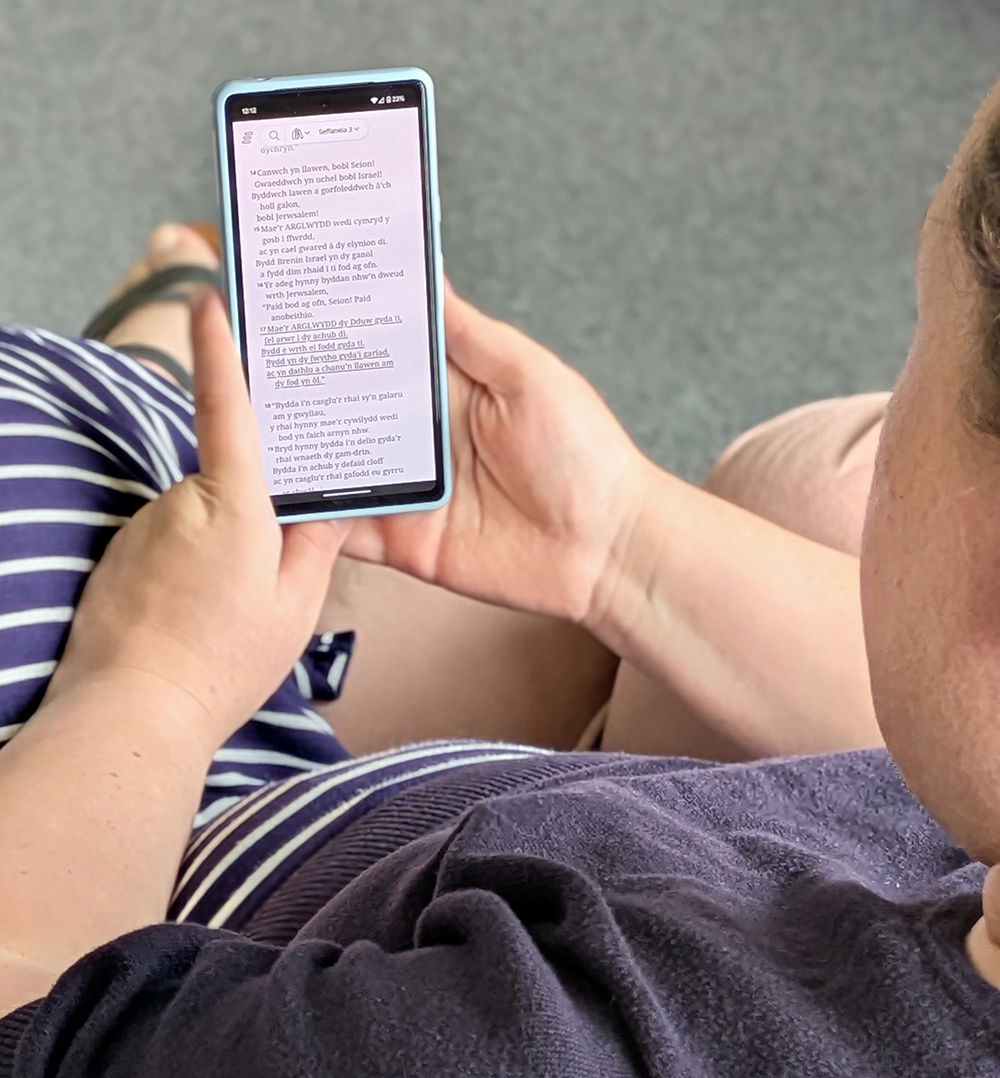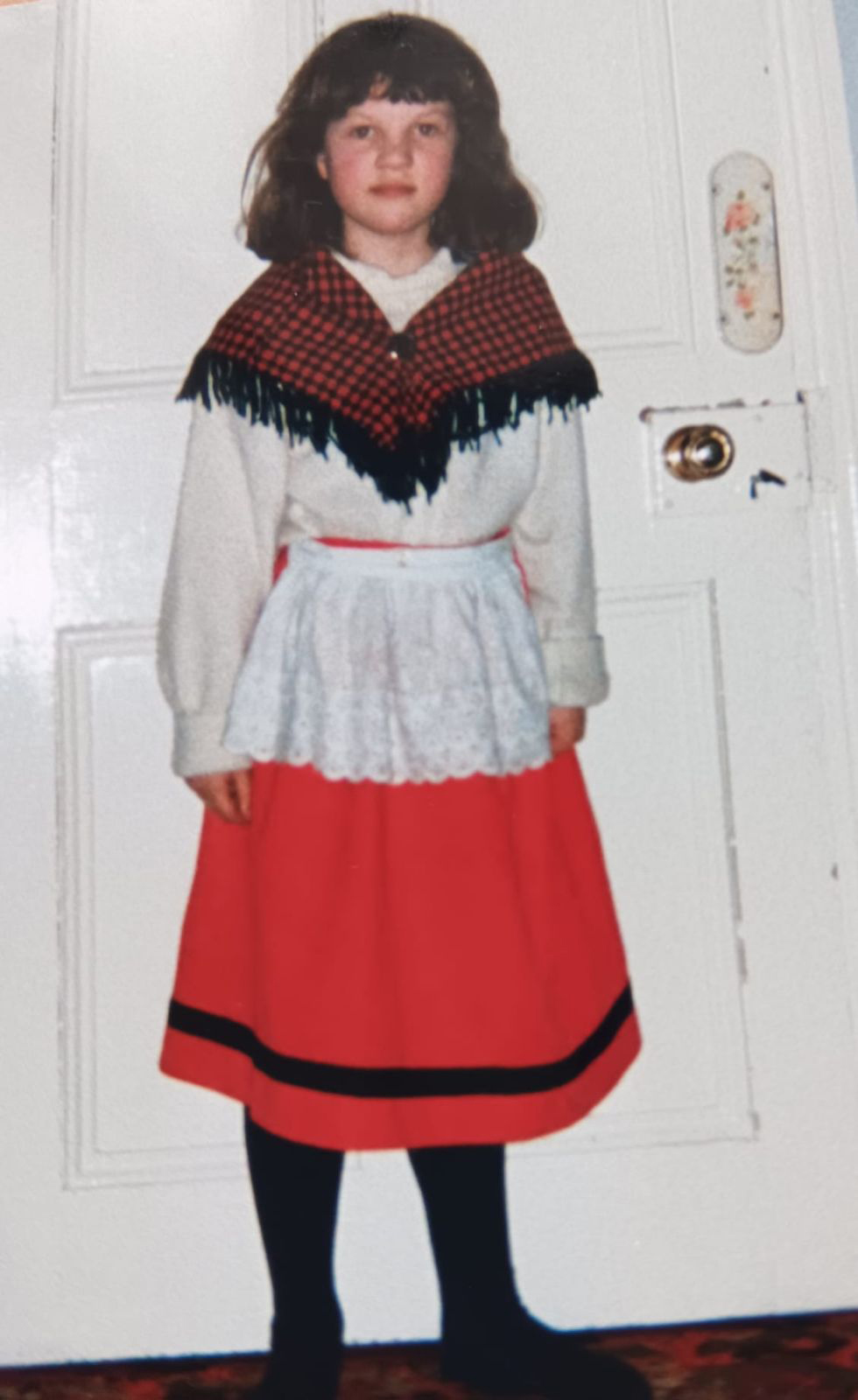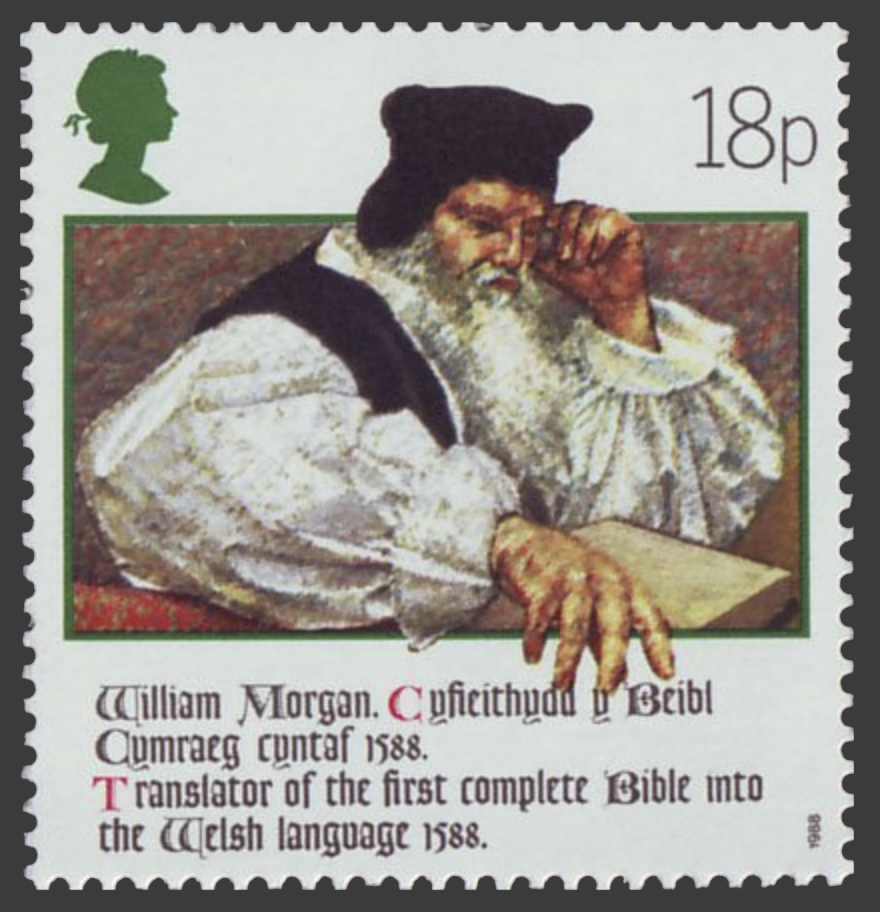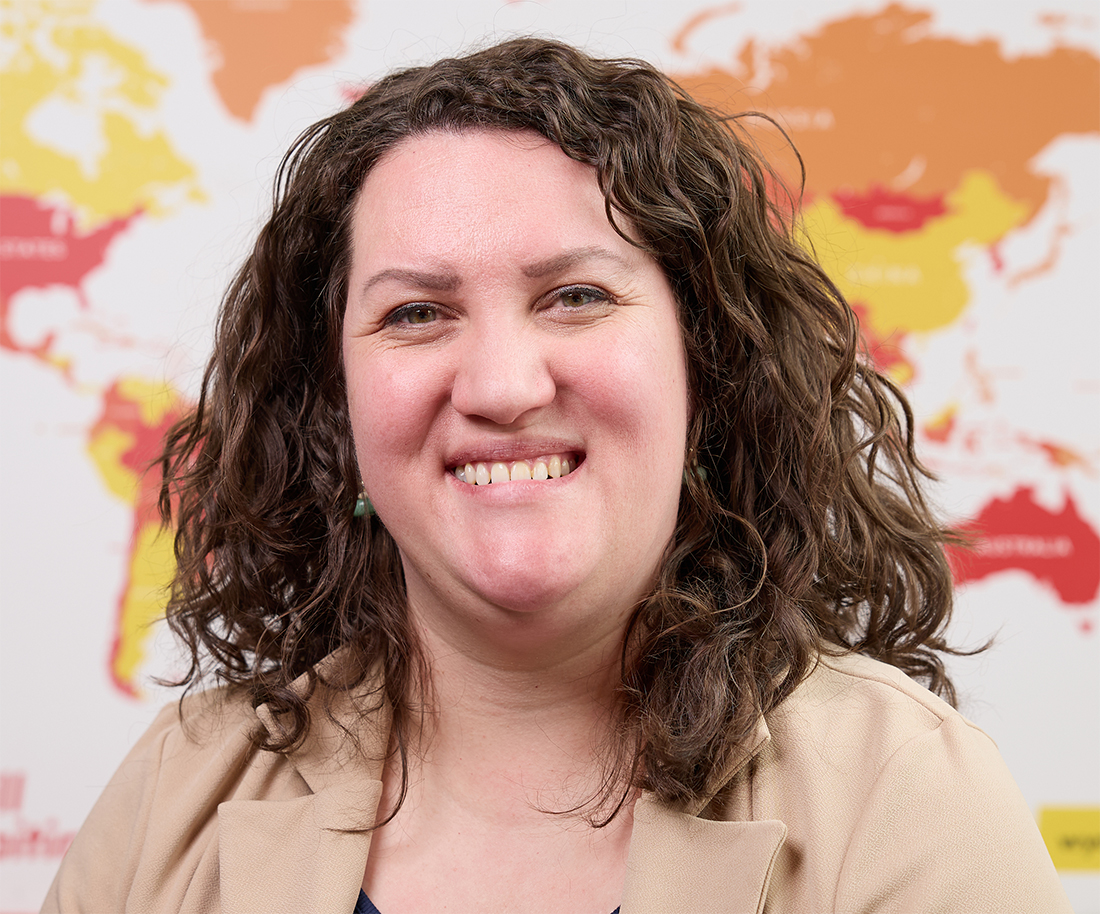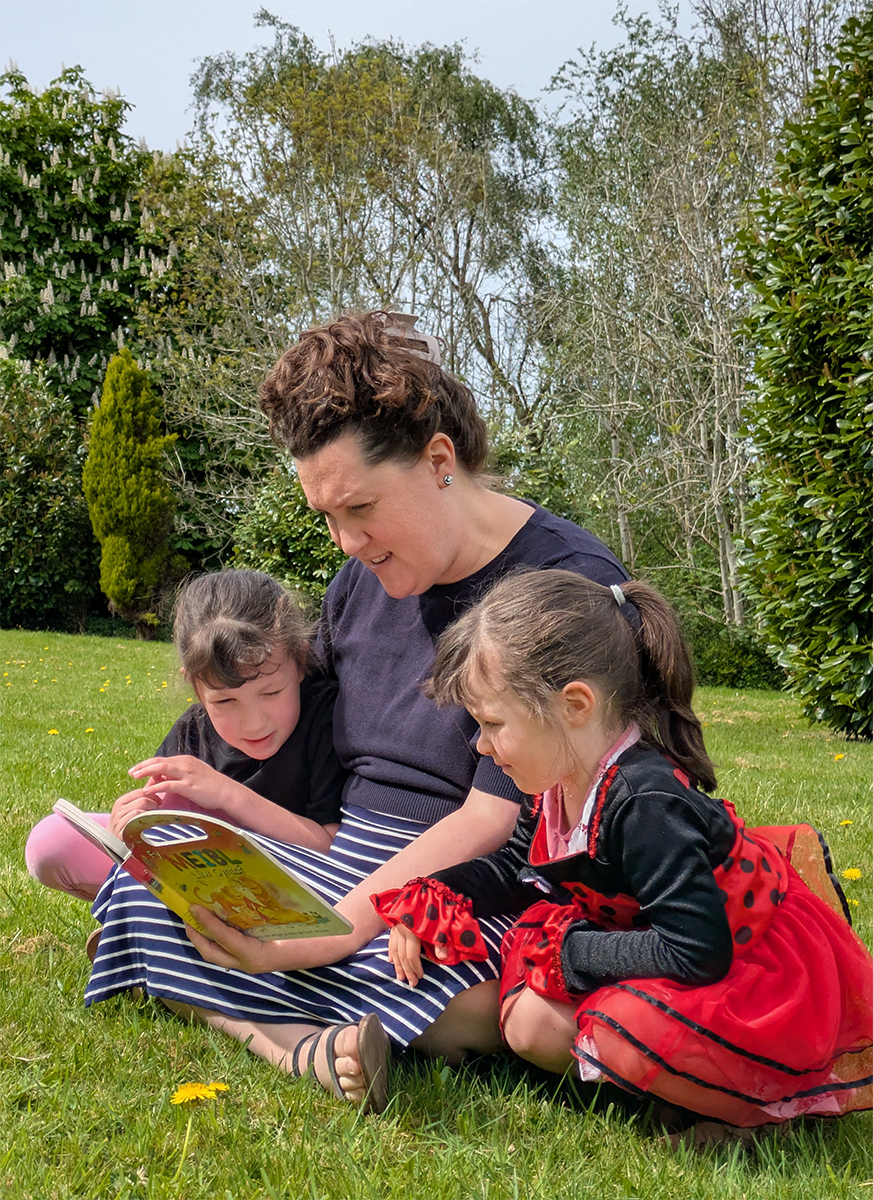‘I remember reading and thinking, oh wow – this is amazing!’ Lowri recalls.
It was 2013, and Lowri was sat in the office at work, looking at the newly launched modern-language Welsh Bible online.
‘It was really exciting,’ she says, ‘for letting people know that the church and the gospel is not something only relevant to their grandparents.’
Lowri’s first thought was what a powerful evangelism tool the new Welsh Bible could be. What she didn’t realise was how much having God’s words in her own language would speak to her heart.


